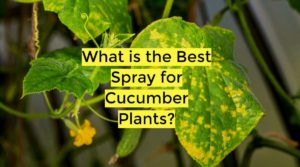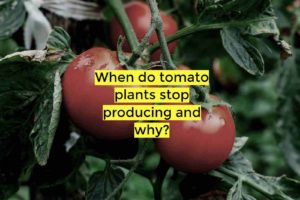Growing watermelon plants is delightful. They are juicy and refreshing fruits during the hot summer months. However, like all plants, watermelon vines have a specific lifespan, and understanding when they cease production can help gardeners maximize their harvest and plan for future seasons. In this blog, we will explore when do watermelon plants stop producing and the factors that influence the productivity of watermelon plants to the end of fruit production.
Factors that influence the productivity of watermelon plants
Lifespan of Watermelon Plants
Watermelon plants, like most annuals, have a defined lifespan. From the moment the seeds are sown or seedlings are transplanted, the plant progresses through different growth stages, culminating in flowering and fruiting.
On average, the entire lifecycle of a watermelon plant lasts between 80 to 100 days, depending on the variety and environmental conditions.
Flowering and Fruiting Period
The flowering stage is a crucial phase in a watermelon plant’s life, as it determines the onset of fruit production.
Once your plant reaches maturity, it starts to produce flowers, and with the help of pollinators, such as bees, the flowers are fertilized, leading to fruit formation.
Watermelon vines tend to produce fruits for several weeks, and during this period, regular harvesting encourages the plant to produce more fruits.
Environmental Factors
Several environmental factors can influence the productivity of watermelon plants. Adequate sunlight is essential for photosynthesis, which fuels the plant’s growth and development.
Lack of sufficient sunlight may lead to a reduction in fruit production. Additionally, temperature and humidity levels play a vital role.
High temperatures can stress the plant, while excessive humidity may promote disease development, both of which can impact fruiting.
Water and Nutrient Requirements
Watermelon plants have relatively high water and nutrient requirements, especially during the fruiting stage. Insufficient watering or poor soil nutrition can lead to reduced fruit yield.
It is essential to ensure that the plants receive an adequate and consistent supply of water and nutrients so that the watermelon plants do not stop producing continuously.
Pests and Diseases
Watermelon plants are susceptible to various pests and diseases that can hinder fruit production.
Common pests like aphids, and cucumber beetles, and diseases such as powdery mildew can affect the plant’s overall health and yield.
Proper pest management and disease prevention strategies can help maintain a healthy plant and encourage prolonged fruiting.
Plant Senescence and Fruit Ripening
As the growing season progresses, watermelon plants naturally undergo senescence, which is the aging process leading to the eventual death of the plant.
As the plant nears the end of its life cycle, it directs its energy towards ripening the existing fruits rather than producing new ones.
At this stage, the watermelon plants will decline in productivity declines and stop producing new fruits altogether.
Seasonal Changes
In areas with distinct seasons, watermelon plants are typically grown during the warm months.
As the summer season comes to an end and temperatures start to drop, the growth and fruiting of watermelon plants slow down and eventually cease.
Frost is particularly damaging to watermelon plants, and exposure to frost can lead to the premature death of the plant.
How long do watermelons take to mature?
The time it takes for watermelons to mature varies depending on the specific variety of watermelon being grown and the environmental conditions.
On average, most watermelon varieties take around 80 to 100 days from planting to reach maturity. However, some fast-maturing varieties can produce ripe fruits in as little as 70 days, while larger, slower-maturing varieties may take up to 120 days.
Several factors can influence the maturation time of watermelons and when watermelon plants stop producing:
1. Variety: Different watermelon varieties have varying maturation periods. Some are specifically bred for faster maturity to suit shorter growing seasons or cooler climates.
2. Climate: Warmer temperatures generally promote faster growth and maturation. Watermelons thrive in hot weather, and if the growing season has high temperatures, the fruits tend to ripen more quickly.
3. Sunlight: Watermelon plants require plenty of sunlight to grow and mature. Adequate sunlight exposure can speed up the ripening process.
4. Soil and Nutrition: Well-draining, nutrient-rich soil supports healthy plant growth, which can contribute to faster maturation.
5. Watering: Consistent and sufficient watering is essential for watermelon plants. Inconsistent watering or drought stress may slow down the maturation process.
6. Pollination: Proper pollination is crucial for fruit development. Adequate pollination, often aided by pollinators like bees, ensures that the plant produces healthy fruits that mature more efficiently.
7. Plant Health: Healthy plants are more likely to mature on time. Managing pests, diseases, and other plant stressors can help maintain the plant’s health and encourage timely fruit development.
You can check variety of watermelon to determine the specific maturation time for growing. Such instruction you can easily read from the label on the packet containing the seeds or you can consult the seed supplier. Additionally, keeping track of the planting date and monitoring the fruit’s development will give you a better idea of when the watermelons are ready for harvest.
How do you know watermelon has stopped producing and why?
Identifying when a watermelon plant has stopped producing requires careful observation of the plant and its fruiting patterns. There are several signs and indicators that can help you determine when a watermelon plant has reached the end of its fruiting phase:
Absence of New Flowers
Watermelon plants produce both male and female flowers. The female flowers are the ones that develop into fruits after successful pollination.
When your watermelon plant has stopped producing new female flowers, it is a clear sign that it is reaching the end of its fruiting period.
No New Fruits
As the plant nears the end of its life cycle, it will stop setting new fruits. If you notice that the plant is no longer producing new watermelons, it indicates that it has stopped its fruiting phase.
Ripening of Last Fruits
Any existing watermelons on the vine will continue to mature and ripen, even after the plant has stopped producing new ones.
As your plant focuses its energy on these remaining fruits, they will reach full maturity and become ready for harvest.
Yellowing of Leaves and Decline
A watermelon plant nearing the end of its life cycle may show signs of decline. The leaves may start to yellow and wilt, and overall growth may slow down. This is a natural part of the plant’s aging process.
Seasonal Changes
In regions with distinct seasons, watermelon plants are often grown during the warm months.
As the growing season comes to an end and temperatures start to drop, your watermelon’s growth and fruiting will naturally slow down and eventually stop.
Frost Damage
If the watermelon plant is exposed to frost, it can cause severe damage and even kill the plant.
Frost typically occurs in colder climates during late fall or early winter, which aligns with the end of the growing season. If the plant is exposed to frost, it will likely cease to produce fruit.
Time Since Planting
Your watermelon plants have a defined lifespan, usually around 80 to 100 days from planting to maturity.
Once this period has passed, the plant’s productivity will naturally decline, and it will eventually stop producing new fruits.
Conclusion
It’s important to note that watermelon plants are annuals, and their life cycle is naturally limited.
Once a watermelon plant has stopped producing fruits and shows signs of decline, it is generally time to consider harvesting the remaining fruits and preparing for the end of the growing season.
When you provide optimal growing conditions, manage pests and diseases, and are aware of their natural lifespan, you can enjoy a bountiful harvest of sweet and juicy watermelons throughout the growing season.
Remember, proper care and attention will keep your watermelon plants healthy and productive for as long as possible, delighting your taste buds with nature’s summer treat.



